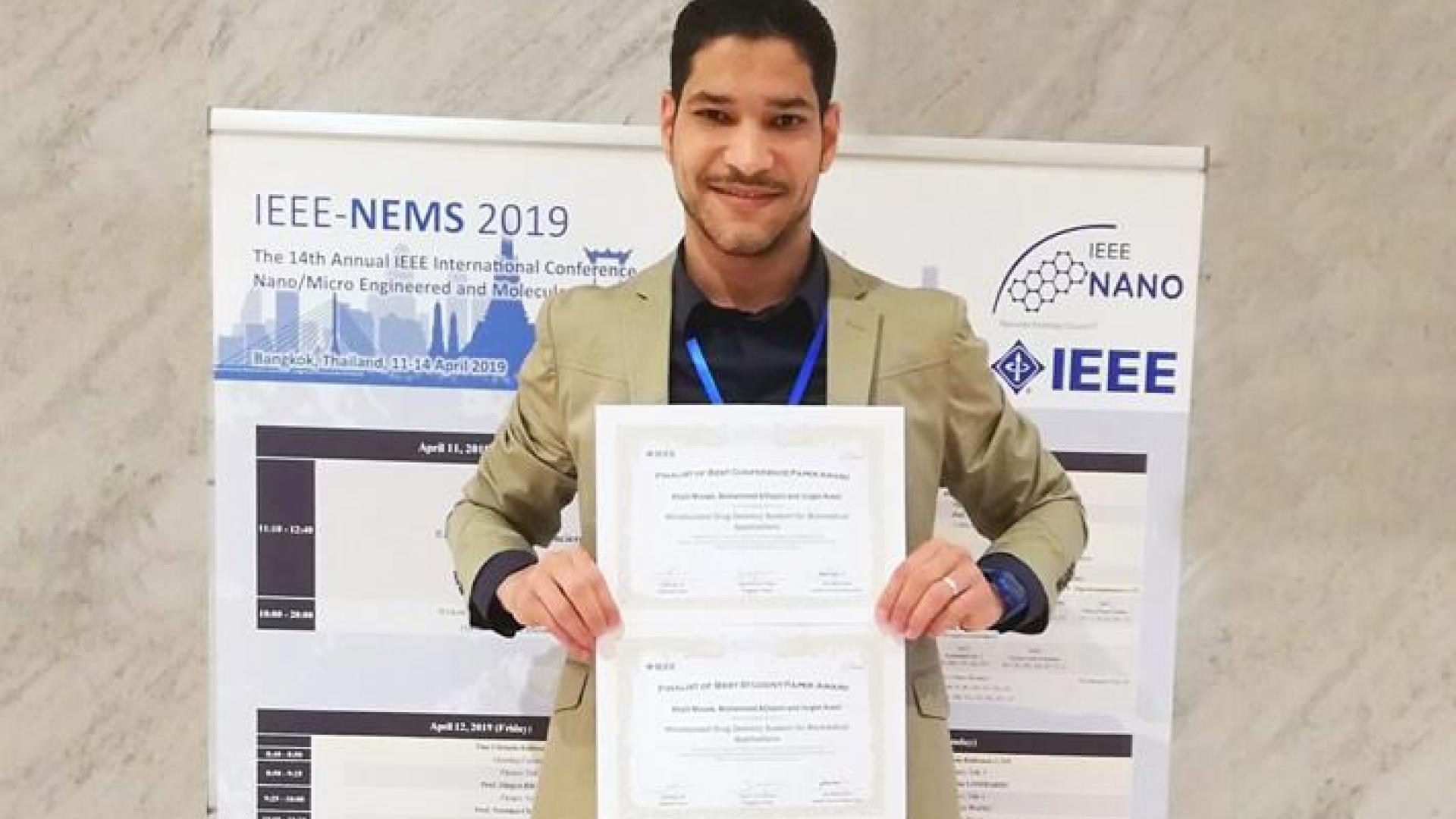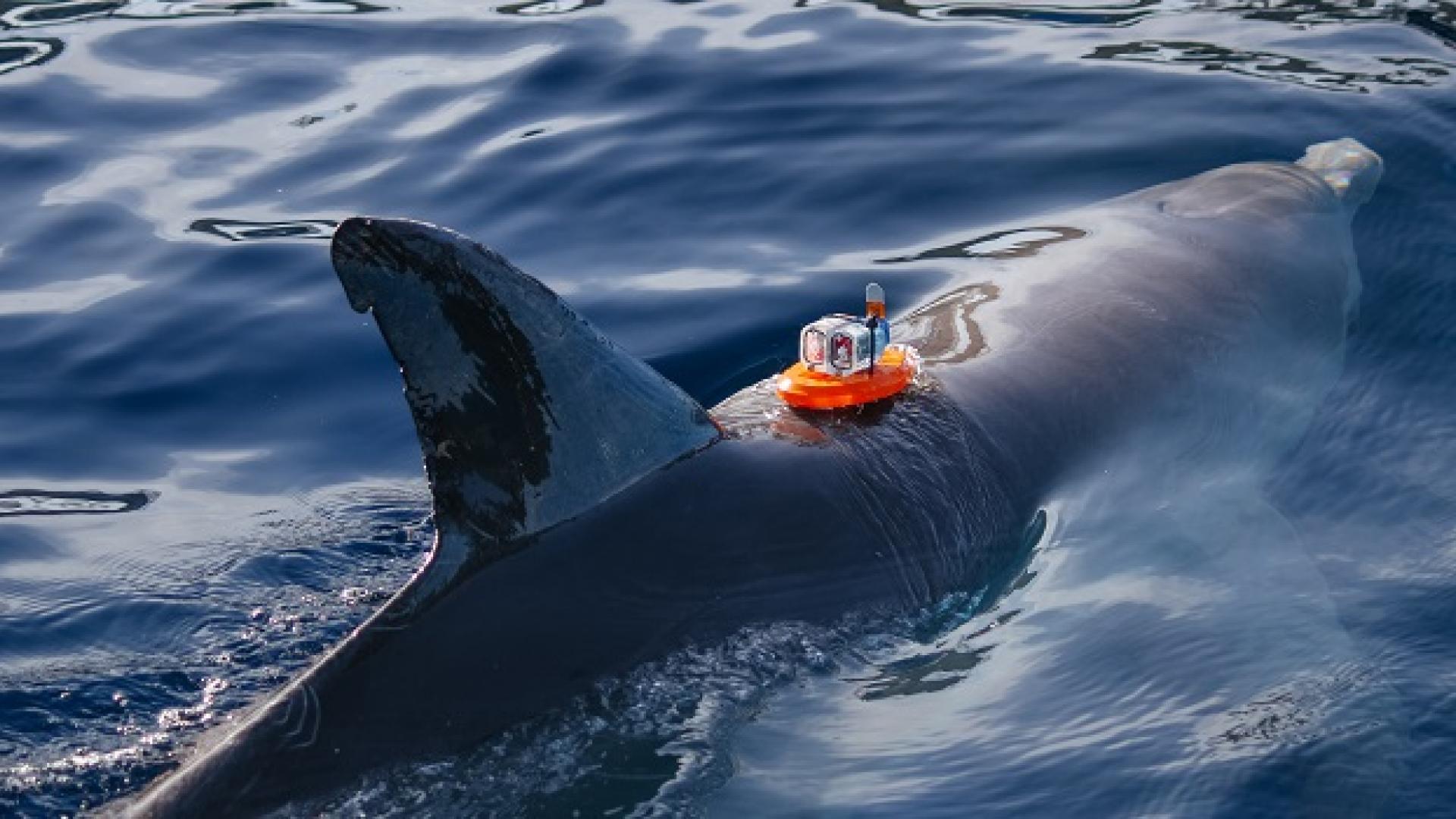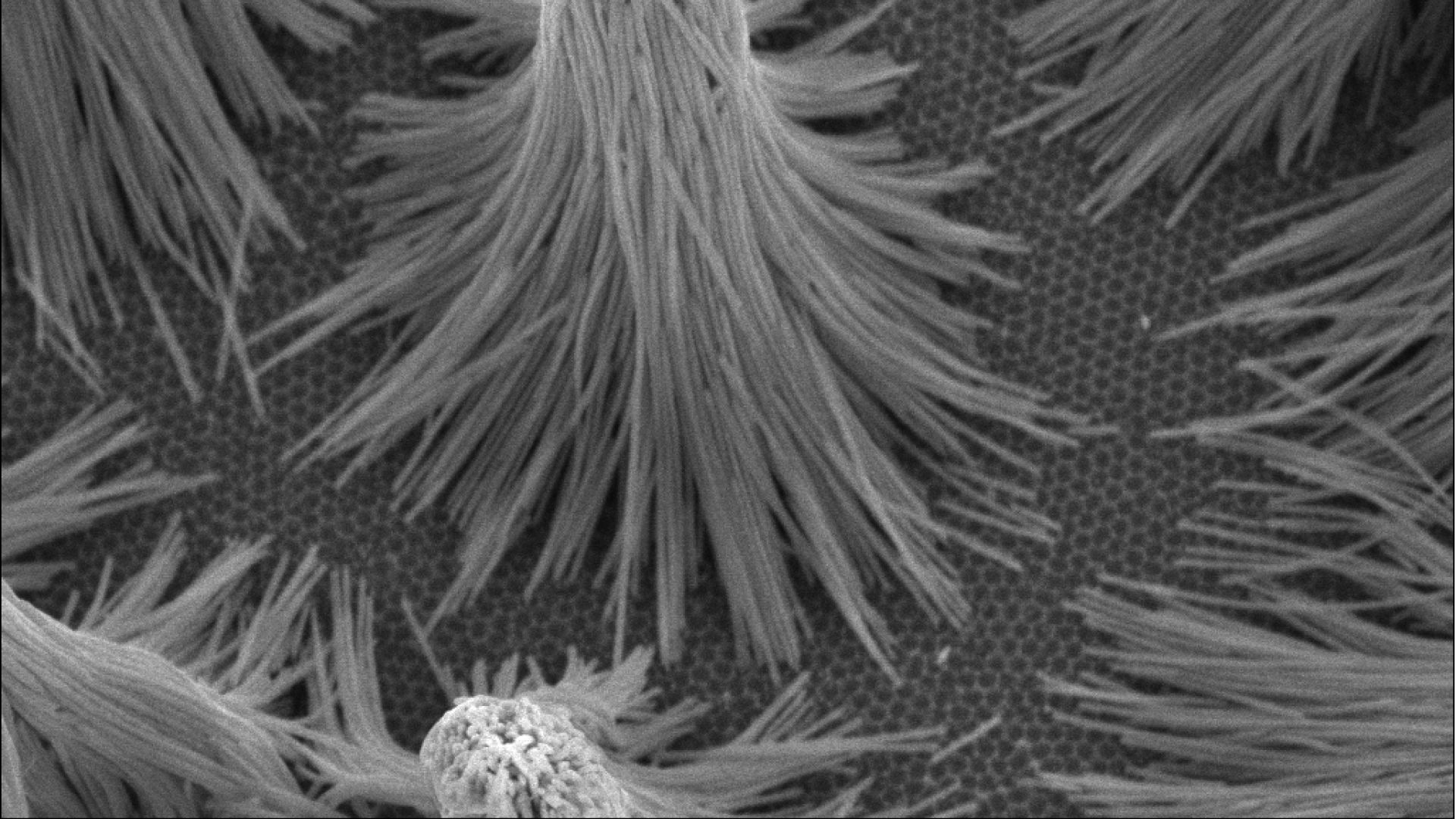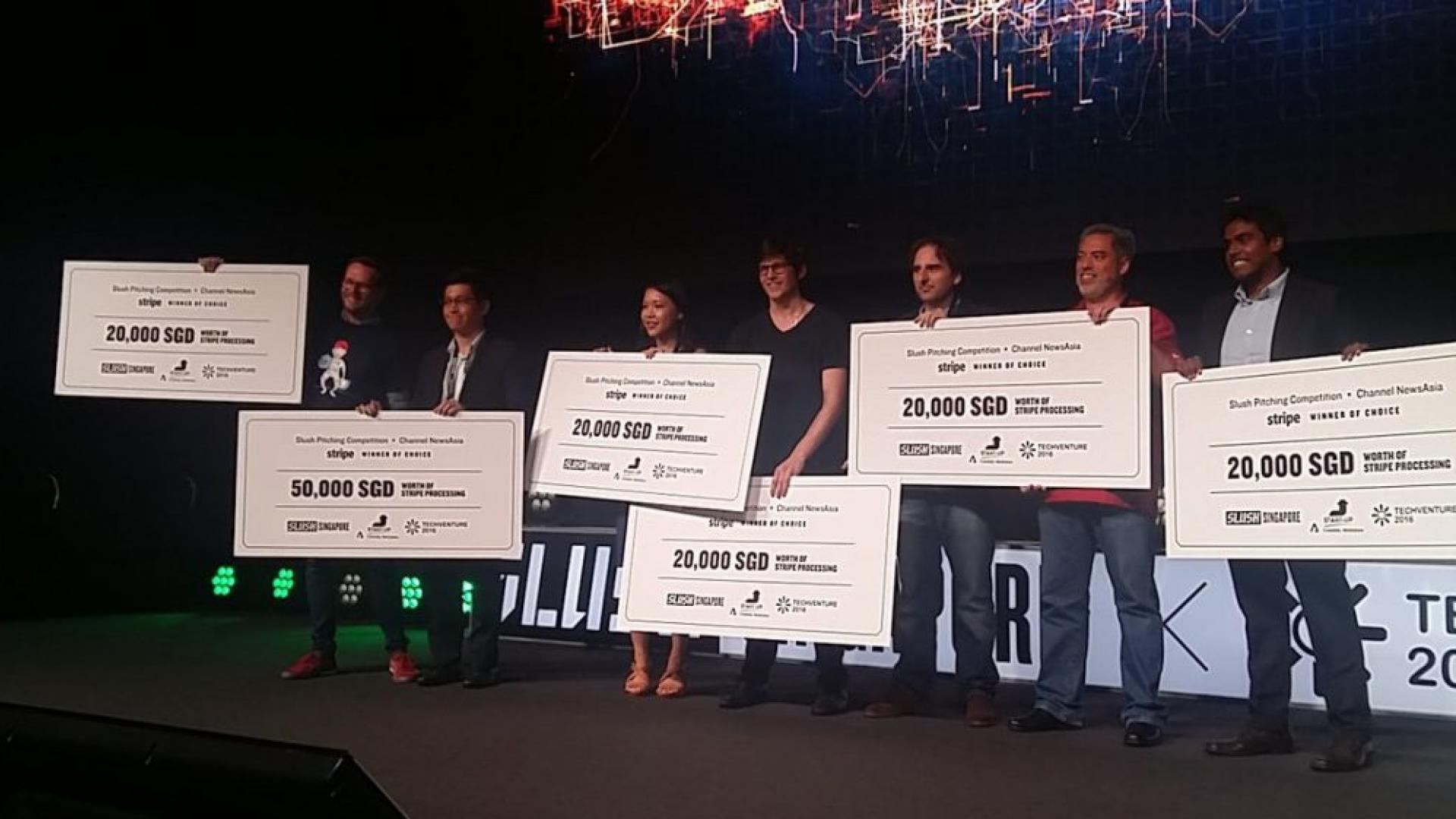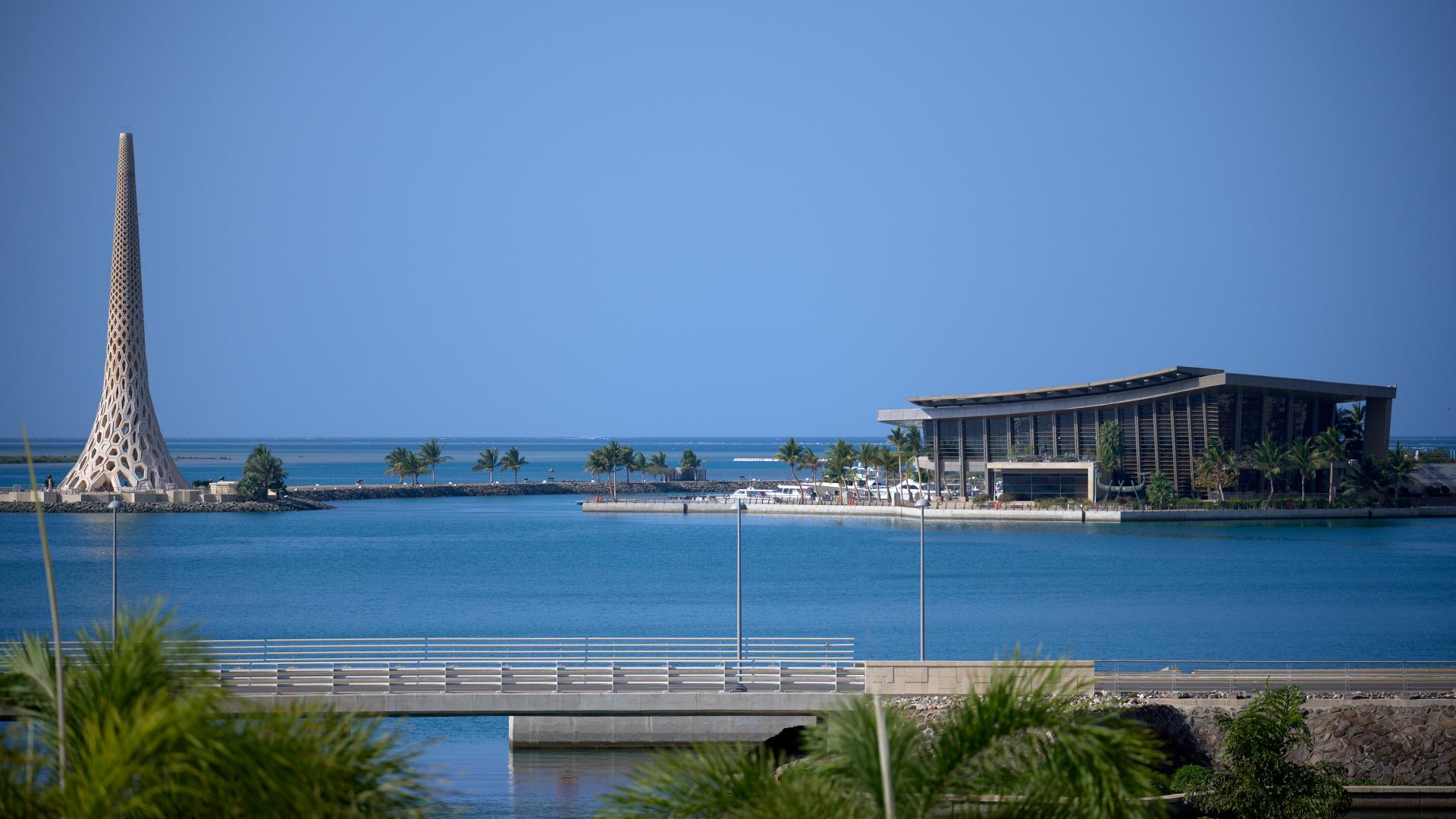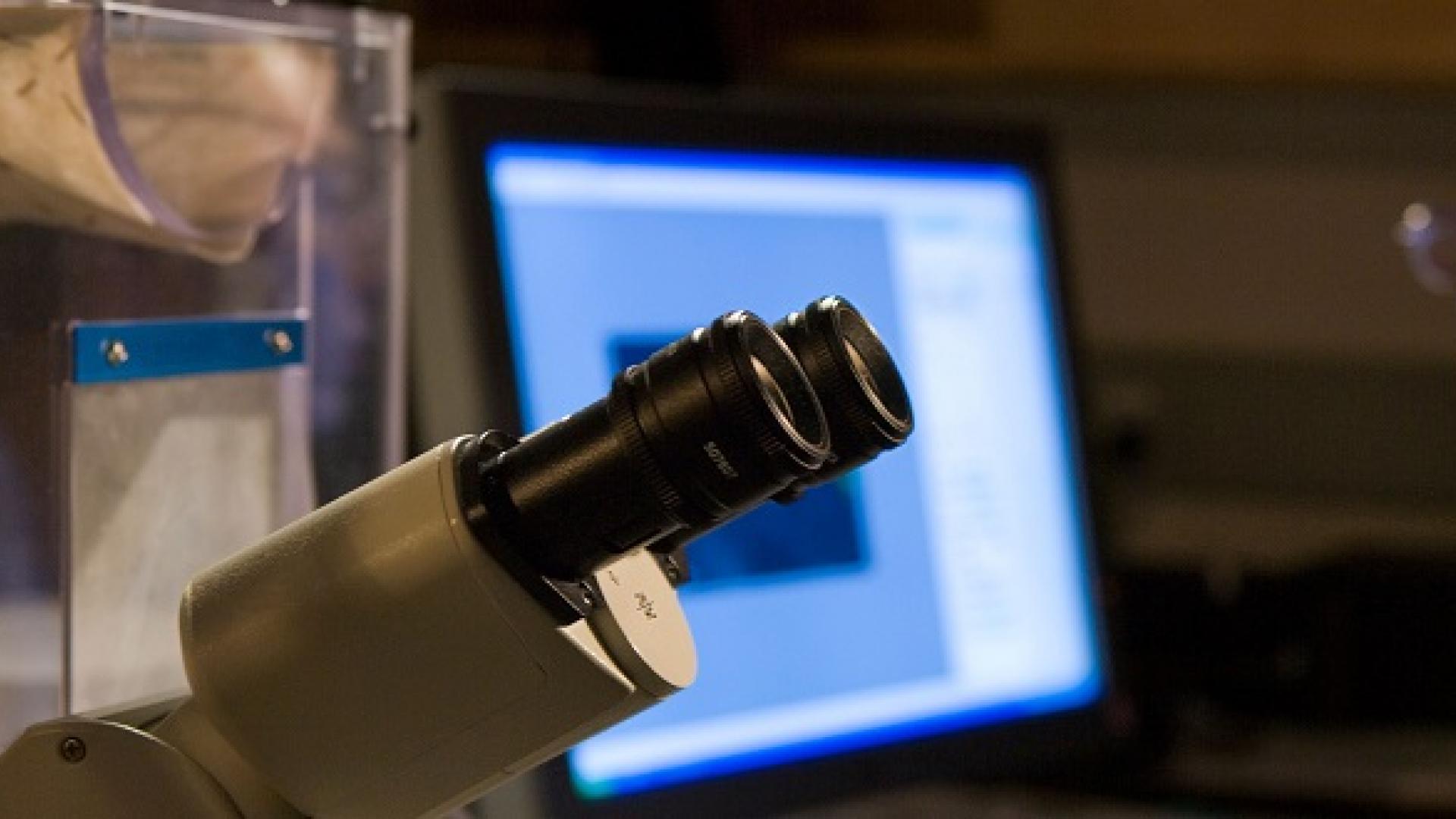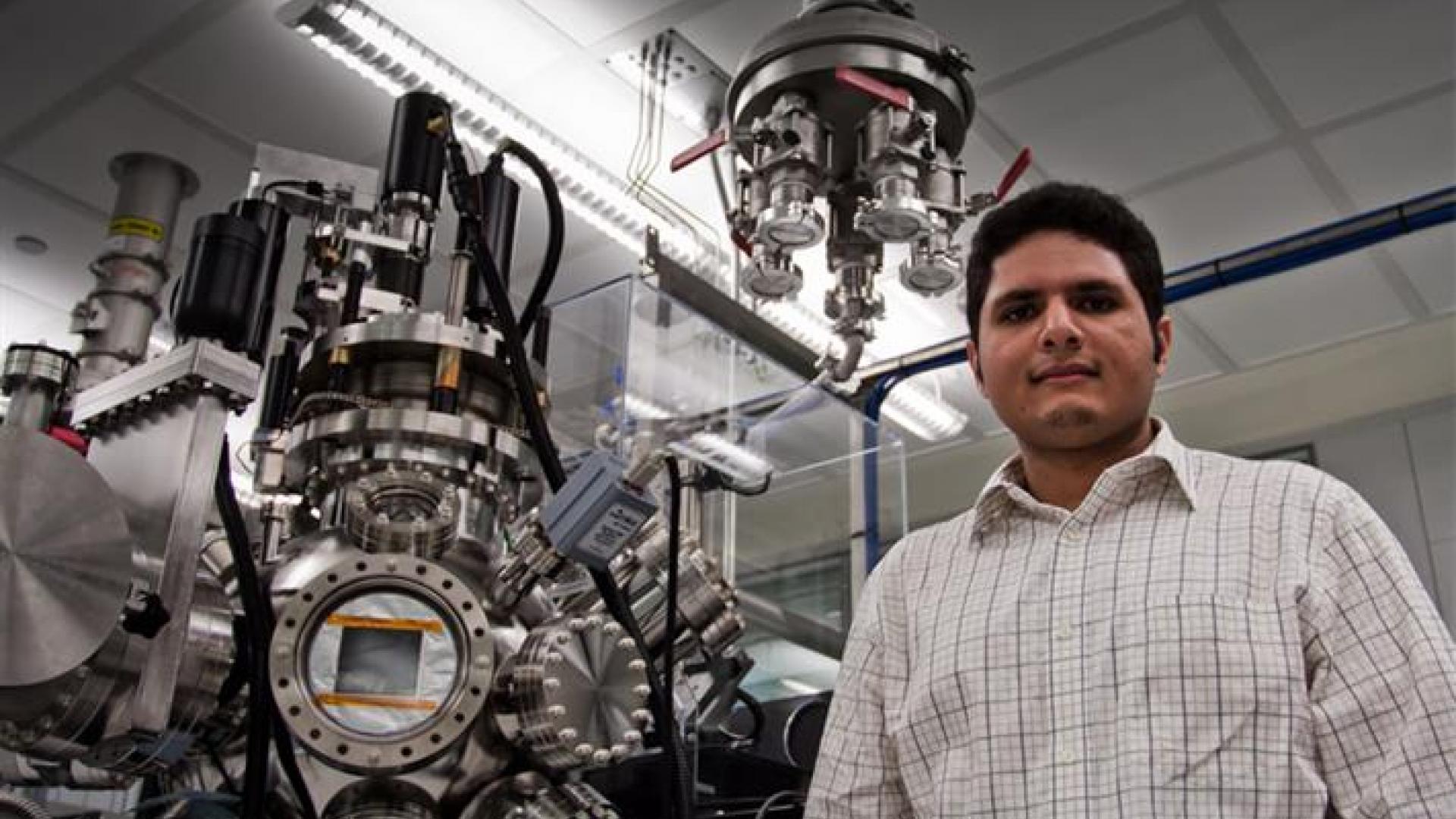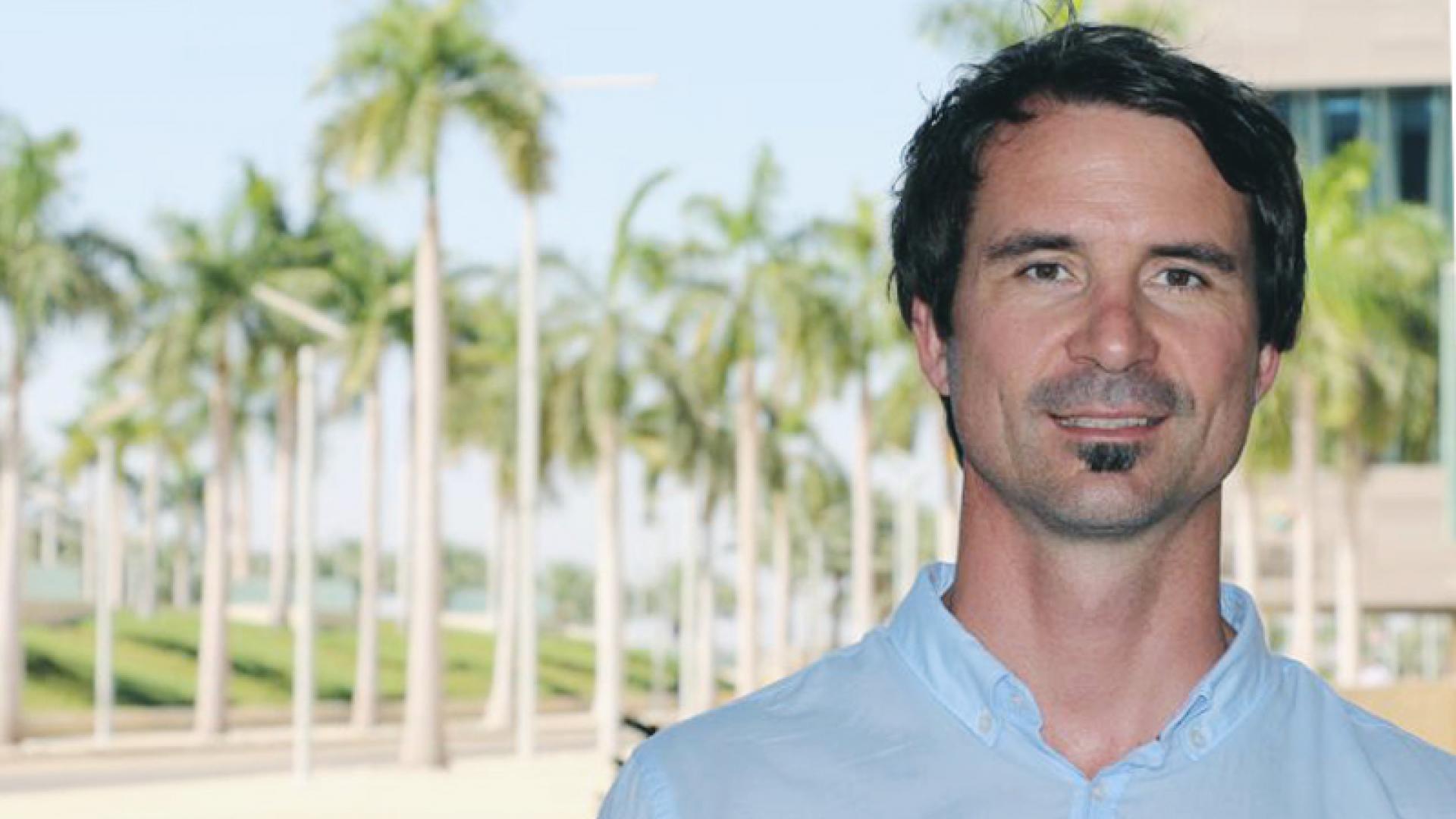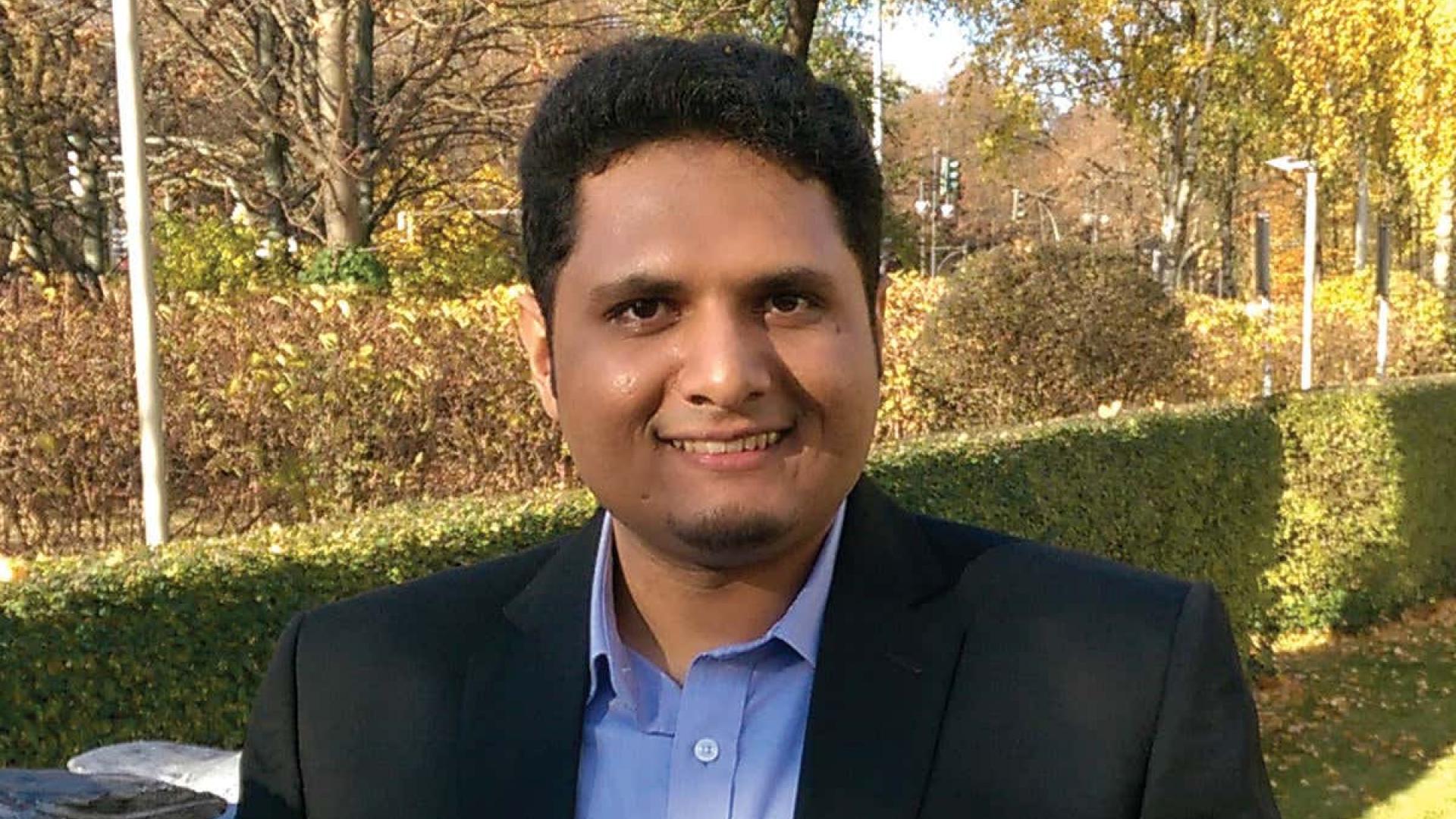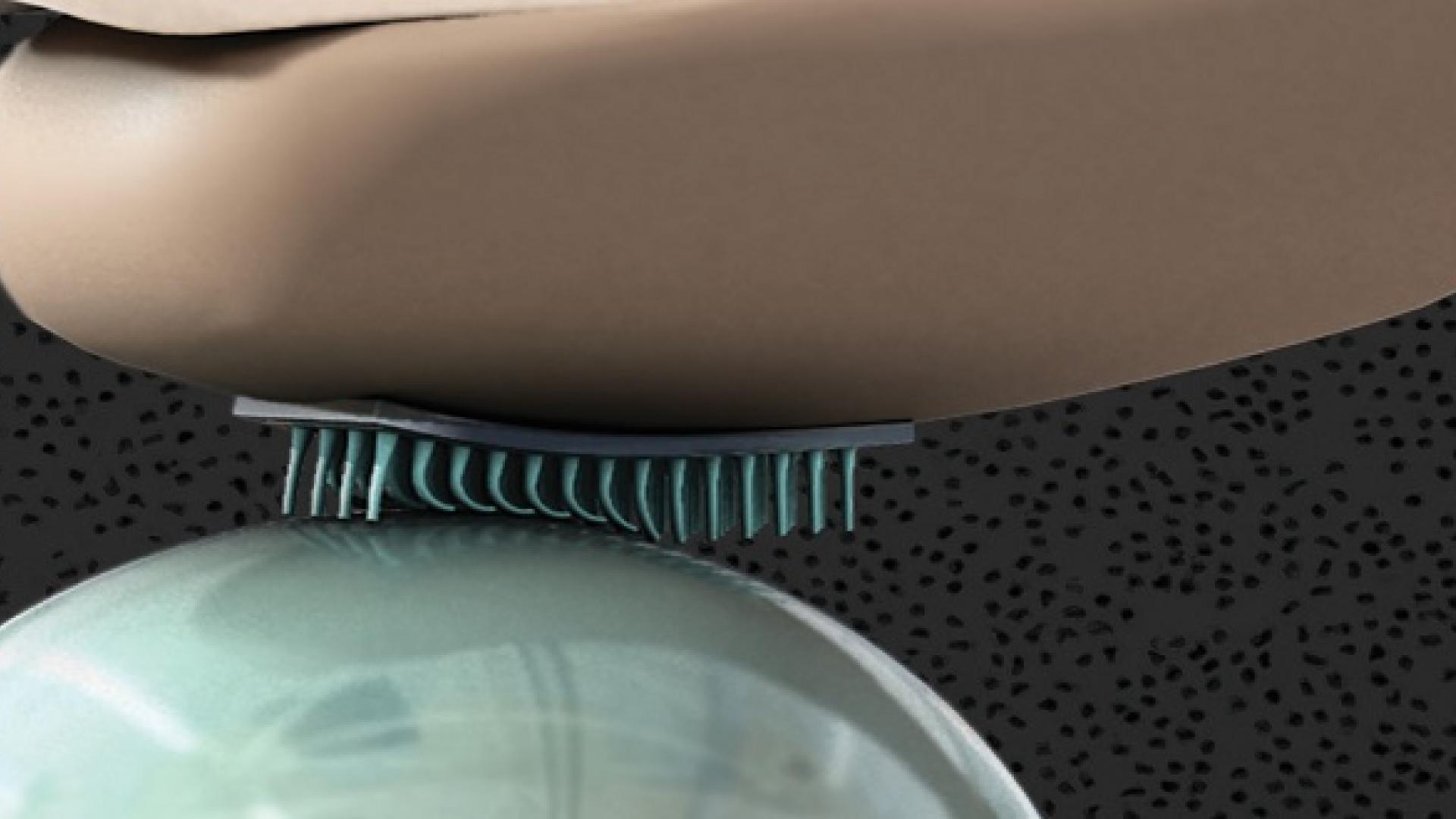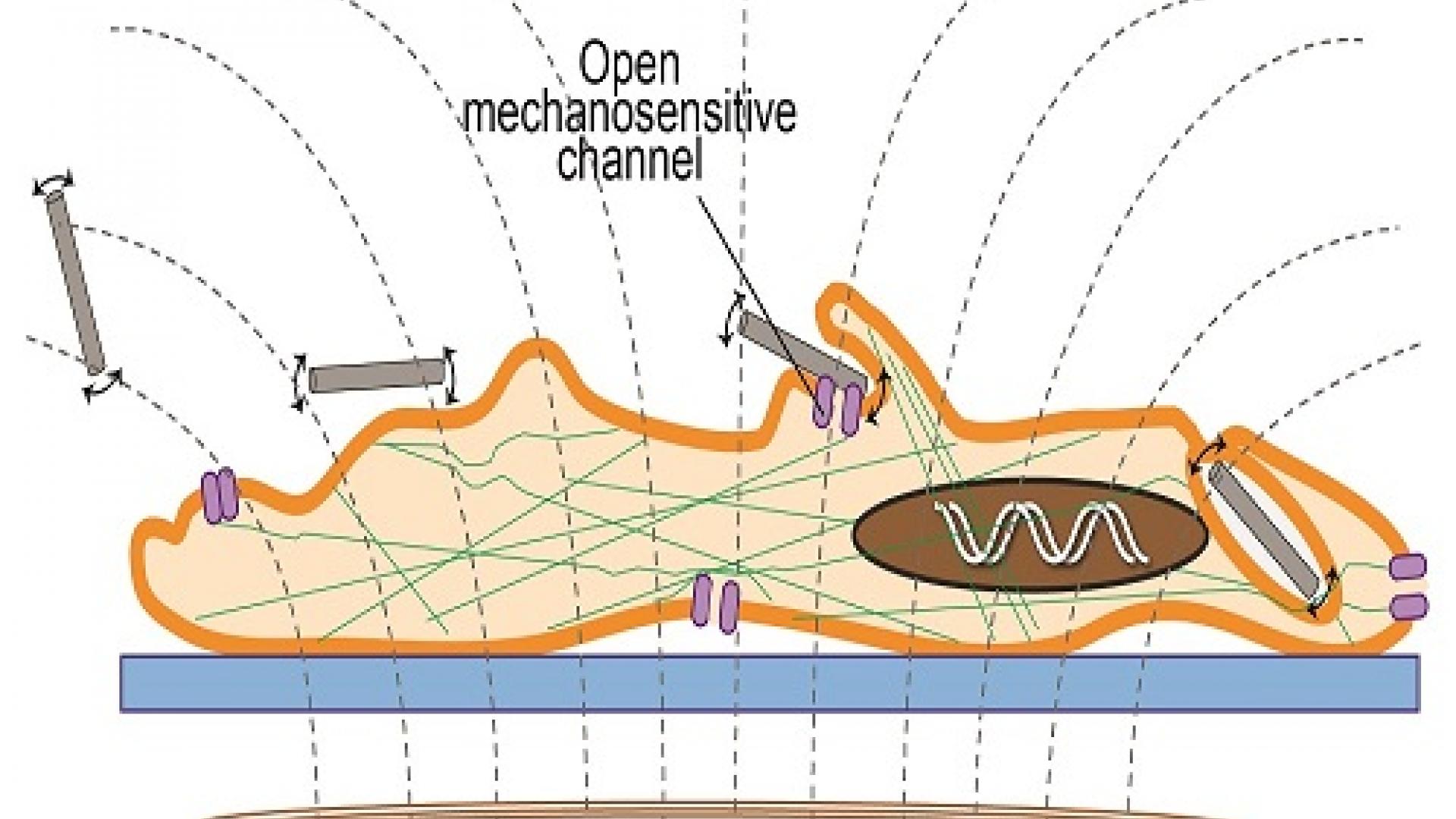KAUST Ph.D. student Khalil Youssef Moussi recently had his innovative research recognized at the 14th Annual IEEE (Institute of Electrical and Electronics Engineers) International Conference on Nano/Micro Engineered and Molecular Systems (NEMS). At the event, which was held in Bangkok, Thailand, from April 11 to 14, the electrical engineering student was a finalist of the Best Student Paper Award and a finalist of the Best Conference Paper Award.
Laser-induced graphene formation creates tailor-made sensors for monitoring ocean creatures and ecosystems.
Jose Efrain Perez, a Ph.D. student based in the University's Sensing, Magnetism and Microsystems Laboratory, won the Magnetism as Art Showcase People's Choice Award at the 62nd Annual Conference on Magnetism and Magnetic Materials (MMM) 2017 for his artwork entitled "Magnetic Nanobeacon." Efrain Perez, who is supervised by Professor Jurgen Kosel, won the award at the MMM's annual showcase which was held in Pittsburgh from November 6 to 10, 2017. His colleague Zahra Albu presented and accepted the award on his behalf.
Altynay Kaidarova, a CEMSE Master student in the Electrical Engineering Program, under the supervision of Prof. Jurgen Kosel, has recently been elected as a member of the Next Generation Magneticans Advisory Board.
Mayyada Hawsawi, master student in the Sensing, Magnetism, and Microsystems Research Group, directed by Professor Jurgen Kosel, brought a piece of KAUST's research to the Falling Walls Global Lab Finale on November 8th 2017, in Berlin, Germany.
Out of 700 applications spanning from France to the USA, the KAUST-born cutting-edge startup Solutions for Nanotechnology (SONATE) was awarded the best science-centered company award. Making its way all the way through to the final top 6 it secured a $20,000 funding cheque.
From DNA sequencing to environment monitoring, microfluidics devices have been broadly employed, but their production is more and more time-consuming and expensive. Researchers from the King Abdullah University of Science and Technology (KAUST), Saudi Arabia, have developed an innovative prototyping method for Lab on a Chip (LOC) production to plummet costs while augmenting performances.
Adjusting the cooking time is all it takes to tune the magnetic properties of these multi-functional iron nanowires.
On April 14, the "Innovator under 35 in the Arab World" prize - an award scheme organized by the MIT was bestowed on Ahmed Alfadhel, a PhD candidate in CEMSE at Kaust.
The Berkeley Sensor & Actuator Center (BSAC), founded in 1986 as the National Science Foundation Industry/University Cooperative Research Center for Microsensors and Microactuators. Professor Kosel spoke about magnetic micro- and nanosystems research being conducted at the Sensing, Magnetism, and Microsystems group at KAUST.
In an interview with New Scientist weekly, PhD student Ahmed Alfadhel from Prof. Jurgen Kosel's team spoke about his research on bio-inspired artificial skin.
Biocompatible tactile sensors based on magnetic hair-like structures enable new applications for touch sensors.
Student wins the IET Saudi Arabia Young Professionals PATW Competition 2014/15.
Congratulations to Professor Jurgen Kosel for his research on an Artificial Skin inspired by nature. Research that was featured in MIT Technology Review.
Magnetic nanowires with weak magnetic fields and low frequencies can destroy cancer cells without generating heat.
